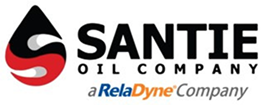
Additives are inorganic or organic chemicals that are added to lubricants to improve their performance. The additives are either suspended or dissolved in the lubricant. Additives make up 0.1% to 30% of the lubricant volume, and this percentage depends on the type of machine used in application. There are many kinds of additives that are added to metalworking fluids to improve their properties and performance. Additives serve three major lubricant improvement roles. They add new properties to the base oils, suppress undesirable properties, or improve base oil properties. This article presents the different types of lubricant additives and their roles.
Anti-Oxidants
Oxidation is the decomposition of the base oil by oxygen molecules in mil spec oils and lubricants. The process occurs at high temperatures and in the presence of contaminants and water. The process produces acids that make sludge corrosive to the system. The antioxidant additives delay the oxidation process and protect the base oil. As such, they also inhibit corrosion and rust by neutralizing the acids that are formed.
Viscosity Index Improvers
Viscosity index improvers are polymer oil additives, which make the oil thicker and prevent its thinning as the temperature increases. These mil spec oils and lubricants additives maintain viscosity levels and they are often used in the blending of multi-grade oils. These additives also improve oil flow at low temperatures.
Anti-Wear Oil Solutions Additives
The anti-wear oil additives protect engine parts from wear and tear. These are polar additives which cling to the metal surfaces, and they are activated by heat, which helps them create a protective film that reduces the wear and tear. The anti-wear additives also prevent oxidation of the base oils and the corrosion of metals. A popular example of anti-wear additives is zinc dialkyldithiophosphate (ZDDP).
Extreme Pressure Additives
The mil spec oils and lubricants extreme pressure (EP) additives react with iron surfaces to make film that prevents the seizure and welding of metals that get into contact. These additives are more aggressive than the anti-wear additives. The EP additives get activated by high loads and contact temperature. These additives often feature in gear oils and they give the gear oils their characteristic Sulphur-based smell. These additives are corrosive to yellow metals.
Detergents
The inclusion of detergent additives in base oils helps in keeping the metal parts free from engine waste deposits. Detergent formulations are basic or alkaline in nature and they help in neutralizing acidic content that forms within the engine. The detergents make up the Base Number (BN) of the base oil, and they are an indication of the level of alkalinity of the base oil.
Dispersants
The dispersants are additives that keep soot suspended or dispersed to keep the engine clean. These additives keep the engine clean and free from combustion deposits. The dispersants are ash-less and organic, and they help in reducing acidity because they are alkaline in nature.
Anti-Foaming Agents
The anti-foaming agents are additives with low interfacial tension. These chemicals make the oil bubble weak and allow the bursting of the bubbles. These chemicals also reduce oxidation by reducing the oil-air contact.
Friction modifiers
These additives affect the friction between transmission components and the engine. The additives lower friction and improve engine efficiency. As such, the additives also improve transmission and oil economy.
Demulsifiers
The demulsifier additives prevent the creation of a stable emulsion of water and oil. These additives change the interfacial tension of oil, and this allows water to coalesce and stay separate from the oil.
Biocides
These are anti-bacterial additives added to base oil to prevent the growth of bacteria.
Emulsifiers
The mil spec oils and lubricants emulsifier additives are added to base oils to create stable water-oil emulsions for fire-resistant fluids and oil-water-based metal-working fluids. The emulsifiers break the surface tension and acts as glue, which bonds the oil and the water.
Tackifiers
The tackifier mil spec oils and lubricants additives improve viscosity and prevent greases and oils from flinging off the metal surfaces of rotating engine parts.
When buying base oils, grease, or any lubricants make sure that the cutting fluids have some or most of these additives for better performance and improved lubrication. For more information, please contact us today.
